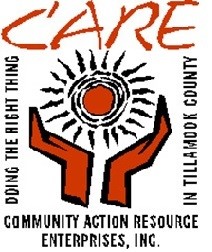On March 22, Governor Brown issued Executive Order No. 20-11, which prohibited law enforcement officers across the state from serving, delivering or acting on any residential eviction notice for nonpayment. On April 1, the Governor issued Executive Order No. 20-13, which granted further protections by relieving residential renters’ obligations to pay late fees or penalties arising from nonpayment. What is important to note in these orders, however, is that they do not relieve the renter’s obligation to pay their rent, or prevent evictions for reasons other than nonpayment. CARE encourages all renters who are able to continue paying their rent. If you have been laid off or lost wages due to the COVID-19 pandemic and are struggling to pay your rent or other expenses, call CARE at 503-842-5261. Case Managers are available 9am to 4pm Monday through Friday. You can also apply for rental assistance on the CARE website at www.CAREinc.org/emergency-services.
Thanks to support from Adventist Health-Tillamook, the Ford Family Foundation and many individual donors from our community, more than $20,000 has been made available to Tillamook County families who are struggling from the economic impacts of the COVID-19 crisis. CARE is here to help our families in need during and after this crisis. CARE offers programs for housing assistance, energy and utilities assistance, and other emergency services for low- to middle-income families experiencing economic hardships. If you are struggling to pay your rent or utilities bills at this time, CARE encourages you to first talk to you landlord or utility provider. Many have programs in place to help their customers and tenants during this crisis. CARE can also help renters work with their landlords to find a solution. The important thing is that you just don’t stop making payments. If you are afraid you will not be able to make your upcoming payments but are not sure what to do next, CARE is here to help you understand your options, rights and responsibilities.
One thing that the Governor’s executive orders do not do, however, is stop landlords from beginning the eviction process for any reason, including nonpayment. While state courts are not currently hearing eviction cases for nonpayment issues, landlords are still able to begin the process that can lead to eviction once the moratorium is lifted. It is also important to note that landlords are still able to pursue evictions related to causes other than nonpayment. These orders also do not forgive rental obligations. Renters continue to carry the liability for their lease throughout this moratorium. If you stop payment for any reason during this period, collection and eviction are real possibilities once the moratorium is lifted on June 20. Once again, CARE encourages you to pay your rent on time if you are able, and if you are not, CARE is here to help. Call CARE at 503-842-5261. Case Managers are available 9am to 4pm Monday through Friday. You can also apply for rental assistance on the CARE website at www.CAREinc.org/emergency-services.
If you are a renter, it is important that you know your rights and responsibilities. You can review the governor’s executive orders and analyses of those orders at the links below:
• Executive Order No. 20-11: https://www.oregon.gov/gov/Documents/executive_orders/eo_20-11.pdf
• Analysis: https://www.opb.org/news/article/oregon-eviction-moratorium-what-you-need-to-know-rent/
• Executive Order No. 20-13: https://www.oregon.gov/gov/Documents/executive_orders/eo_20-13.pdf
• Analysis: https://www.myoregon.gov/2020/04/02/new-protections-enacted-for-oregon-renters/


